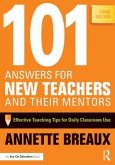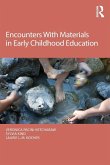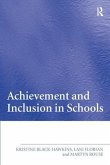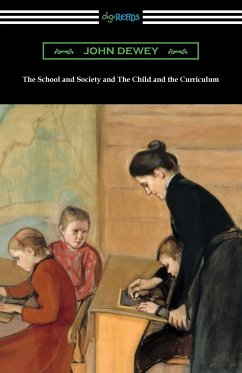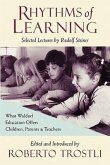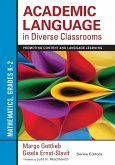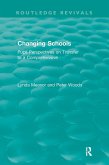- Broschiertes Buch
- Merkliste
- Auf die Merkliste
- Bewerten Bewerten
- Teilen
- Produkt teilen
- Produkterinnerung
- Produkterinnerung
- Weitere 7 Ausgaben:
- Gebundenes Buch
- Gebundenes Buch
- Broschiertes Buch
- eBook, ePUB
- eBook, ePUB
- eBook, ePUB
- eBook, PDF
This textbook offers a comprehensive introduction to key areas of psychology, classical and contemporary, and how an understanding of the subject can inform smart classroom practice.
Andere Kunden interessierten sich auch für
![101 Answers for New Teachers and Their Mentors 101 Answers for New Teachers and Their Mentors]() Annette Breaux101 Answers for New Teachers and Their Mentors25,99 €
Annette Breaux101 Answers for New Teachers and Their Mentors25,99 €![Encounters with Materials in Early Childhood Education Encounters with Materials in Early Childhood Education]() Veronica Pacini-KetchabawEncounters with Materials in Early Childhood Education51,99 €
Veronica Pacini-KetchabawEncounters with Materials in Early Childhood Education51,99 €![Achievement and Inclusion in Schools Achievement and Inclusion in Schools]() Lani FlorianAchievement and Inclusion in Schools37,99 €
Lani FlorianAchievement and Inclusion in Schools37,99 €![The School and Society and The Child and the Curriculum The School and Society and The Child and the Curriculum]() John DeweyThe School and Society and The Child and the Curriculum11,99 €
John DeweyThe School and Society and The Child and the Curriculum11,99 €![Rhythms of Learning Rhythms of Learning]() Rudolf SteinerRhythms of Learning29,99 €
Rudolf SteinerRhythms of Learning29,99 €![Academic Language in Diverse Classrooms Academic Language in Diverse Classrooms]() Margo GottliebAcademic Language in Diverse Classrooms29,99 €
Margo GottliebAcademic Language in Diverse Classrooms29,99 €![Changing Schools Changing Schools]() Lynda MeasorChanging Schools49,99 €
Lynda MeasorChanging Schools49,99 €-
-
-
This textbook offers a comprehensive introduction to key areas of psychology, classical and contemporary, and how an understanding of the subject can inform smart classroom practice.
Hinweis: Dieser Artikel kann nur an eine deutsche Lieferadresse ausgeliefert werden.
Hinweis: Dieser Artikel kann nur an eine deutsche Lieferadresse ausgeliefert werden.
Produktdetails
- Produktdetails
- Verlag: Sage Publications Ltd
- 4 Revised edition
- Seitenzahl: 448
- Erscheinungstermin: 10. Mai 2025
- Englisch
- Abmessung: 246mm x 189mm
- ISBN-13: 9781529680096
- ISBN-10: 1529680093
- Artikelnr.: 72488419
- Herstellerkennzeichnung
- Libri GmbH
- Europaallee 1
- 36244 Bad Hersfeld
- gpsr@libri.de
- Verlag: Sage Publications Ltd
- 4 Revised edition
- Seitenzahl: 448
- Erscheinungstermin: 10. Mai 2025
- Englisch
- Abmessung: 246mm x 189mm
- ISBN-13: 9781529680096
- ISBN-10: 1529680093
- Artikelnr.: 72488419
- Herstellerkennzeichnung
- Libri GmbH
- Europaallee 1
- 36244 Bad Hersfeld
- gpsr@libri.de
Scott Buckler has been involved in education since the 1990s, fluctuating between primary teaching, secondary teaching (science, computing, psychology), and universities (education, sport, psychology). From teaching research methods across the expanse of education (from the primary years through to doctorates), Scott has been an advocate of high quality research, through facilitating an open mind while maintaining academic integrity. His research has encompassed many areas, often with the theme of personal and professional growth, through the lens of transpersonal psychology. His PhD thesis was interdisciplinary, combining anthropology and psychology to explore the way that the martial arts lead to personal transformation. Professionally, Scott's research is predominantly in applied educational psychology, inclusive education, and research methods. Scott is a Chartered Teacher and Chartered Psychologist.
SECTION ONE: UNDERSTANDING PSYCHOLOGY
1 Introduction
2 Philosophy of education
SECTION TWO: PSYCHOLOGICAL PERSPECTIVES ON EDUCATION
3 Psychodynamic perspectives
4 Behaviourist perspectives
5 Social perspectives
6 Humanistic perspectives
7 Cognitive perspectives
SECTION THREE: THE DEVELOPING CHILD
8 Neurological, perceptual, and physical development
9 The development of the self
10 Social, emotional, personality, and behavioural development
SECTION FOUR: MEETING THE NEEDS OF THE LEARNER
11 Motivation
12 Applied cognitive science and educational neuroscience
13 Neurodivergence within the broader context
14 Mental wellbeing
15 Applied psychological skills
16 Using applied psychology to enhance behaviour
17 The effective teacher
1 Introduction
2 Philosophy of education
SECTION TWO: PSYCHOLOGICAL PERSPECTIVES ON EDUCATION
3 Psychodynamic perspectives
4 Behaviourist perspectives
5 Social perspectives
6 Humanistic perspectives
7 Cognitive perspectives
SECTION THREE: THE DEVELOPING CHILD
8 Neurological, perceptual, and physical development
9 The development of the self
10 Social, emotional, personality, and behavioural development
SECTION FOUR: MEETING THE NEEDS OF THE LEARNER
11 Motivation
12 Applied cognitive science and educational neuroscience
13 Neurodivergence within the broader context
14 Mental wellbeing
15 Applied psychological skills
16 Using applied psychology to enhance behaviour
17 The effective teacher
Part 1: Psychological perspectives on education
Chapter 1: Classical Learning Approaches within Psychology
Chapter 2: Contemporary Learning Approaches within Psychology
Chapter 3: The Effective Teacher
Chapter 4: The Philosophy and Psychology of Professional Practice
Part 2: The individual learner
Chapter 5: Neurological and Physical Development
Chapter 6: Perceptual and Cognitive Development
Chapter 7: Social, Emotional Development and Personality
Part 3: Meeting the needs of the learner
Chapter 8: Understanding the Self
Chapter 9: Understanding Special Educational Needs, Disabilities and Inclusion (SENDI)
Chapter 10: Motivation
Chapter 11: Integrating Psychology in the Classroom
Part 4: Mental health, wellbeing and resilience
Chapter 12: Mental Wellbeing
Chapter 13: Coaching Psychology and Developing Resilience
Part 5: Psychological skills training
Chapter 14: Goal-Setting
Chapter 15: Mental Imagery
Chapter 16: Self-Talk and Cognitive Restructuring
Chapter 17: Relaxation
Part 6: Evidence-based teaching
Chapter 18: Reading, Reasoning and Researching Education
Part 7: Classroom practice
Chapter 19: The Learning Environment
Chapter 20: Elearning: The New Frontier in Education
Chapter 21: The 'Ideal' Teacher
Chapter 22: Reflective Position: Integrating the Strands of this Book
Chapter 1: Classical Learning Approaches within Psychology
Chapter 2: Contemporary Learning Approaches within Psychology
Chapter 3: The Effective Teacher
Chapter 4: The Philosophy and Psychology of Professional Practice
Part 2: The individual learner
Chapter 5: Neurological and Physical Development
Chapter 6: Perceptual and Cognitive Development
Chapter 7: Social, Emotional Development and Personality
Part 3: Meeting the needs of the learner
Chapter 8: Understanding the Self
Chapter 9: Understanding Special Educational Needs, Disabilities and Inclusion (SENDI)
Chapter 10: Motivation
Chapter 11: Integrating Psychology in the Classroom
Part 4: Mental health, wellbeing and resilience
Chapter 12: Mental Wellbeing
Chapter 13: Coaching Psychology and Developing Resilience
Part 5: Psychological skills training
Chapter 14: Goal-Setting
Chapter 15: Mental Imagery
Chapter 16: Self-Talk and Cognitive Restructuring
Chapter 17: Relaxation
Part 6: Evidence-based teaching
Chapter 18: Reading, Reasoning and Researching Education
Part 7: Classroom practice
Chapter 19: The Learning Environment
Chapter 20: Elearning: The New Frontier in Education
Chapter 21: The 'Ideal' Teacher
Chapter 22: Reflective Position: Integrating the Strands of this Book
SECTION ONE: UNDERSTANDING PSYCHOLOGY
1 Introduction
2 Philosophy of education
SECTION TWO: PSYCHOLOGICAL PERSPECTIVES ON EDUCATION
3 Psychodynamic perspectives
4 Behaviourist perspectives
5 Social perspectives
6 Humanistic perspectives
7 Cognitive perspectives
SECTION THREE: THE DEVELOPING CHILD
8 Neurological, perceptual, and physical development
9 The development of the self
10 Social, emotional, personality, and behavioural development
SECTION FOUR: MEETING THE NEEDS OF THE LEARNER
11 Motivation
12 Applied cognitive science and educational neuroscience
13 Neurodivergence within the broader context
14 Mental wellbeing
15 Applied psychological skills
16 Using applied psychology to enhance behaviour
17 The effective teacher
1 Introduction
2 Philosophy of education
SECTION TWO: PSYCHOLOGICAL PERSPECTIVES ON EDUCATION
3 Psychodynamic perspectives
4 Behaviourist perspectives
5 Social perspectives
6 Humanistic perspectives
7 Cognitive perspectives
SECTION THREE: THE DEVELOPING CHILD
8 Neurological, perceptual, and physical development
9 The development of the self
10 Social, emotional, personality, and behavioural development
SECTION FOUR: MEETING THE NEEDS OF THE LEARNER
11 Motivation
12 Applied cognitive science and educational neuroscience
13 Neurodivergence within the broader context
14 Mental wellbeing
15 Applied psychological skills
16 Using applied psychology to enhance behaviour
17 The effective teacher
Part 1: Psychological perspectives on education
Chapter 1: Classical Learning Approaches within Psychology
Chapter 2: Contemporary Learning Approaches within Psychology
Chapter 3: The Effective Teacher
Chapter 4: The Philosophy and Psychology of Professional Practice
Part 2: The individual learner
Chapter 5: Neurological and Physical Development
Chapter 6: Perceptual and Cognitive Development
Chapter 7: Social, Emotional Development and Personality
Part 3: Meeting the needs of the learner
Chapter 8: Understanding the Self
Chapter 9: Understanding Special Educational Needs, Disabilities and Inclusion (SENDI)
Chapter 10: Motivation
Chapter 11: Integrating Psychology in the Classroom
Part 4: Mental health, wellbeing and resilience
Chapter 12: Mental Wellbeing
Chapter 13: Coaching Psychology and Developing Resilience
Part 5: Psychological skills training
Chapter 14: Goal-Setting
Chapter 15: Mental Imagery
Chapter 16: Self-Talk and Cognitive Restructuring
Chapter 17: Relaxation
Part 6: Evidence-based teaching
Chapter 18: Reading, Reasoning and Researching Education
Part 7: Classroom practice
Chapter 19: The Learning Environment
Chapter 20: Elearning: The New Frontier in Education
Chapter 21: The 'Ideal' Teacher
Chapter 22: Reflective Position: Integrating the Strands of this Book
Chapter 1: Classical Learning Approaches within Psychology
Chapter 2: Contemporary Learning Approaches within Psychology
Chapter 3: The Effective Teacher
Chapter 4: The Philosophy and Psychology of Professional Practice
Part 2: The individual learner
Chapter 5: Neurological and Physical Development
Chapter 6: Perceptual and Cognitive Development
Chapter 7: Social, Emotional Development and Personality
Part 3: Meeting the needs of the learner
Chapter 8: Understanding the Self
Chapter 9: Understanding Special Educational Needs, Disabilities and Inclusion (SENDI)
Chapter 10: Motivation
Chapter 11: Integrating Psychology in the Classroom
Part 4: Mental health, wellbeing and resilience
Chapter 12: Mental Wellbeing
Chapter 13: Coaching Psychology and Developing Resilience
Part 5: Psychological skills training
Chapter 14: Goal-Setting
Chapter 15: Mental Imagery
Chapter 16: Self-Talk and Cognitive Restructuring
Chapter 17: Relaxation
Part 6: Evidence-based teaching
Chapter 18: Reading, Reasoning and Researching Education
Part 7: Classroom practice
Chapter 19: The Learning Environment
Chapter 20: Elearning: The New Frontier in Education
Chapter 21: The 'Ideal' Teacher
Chapter 22: Reflective Position: Integrating the Strands of this Book


